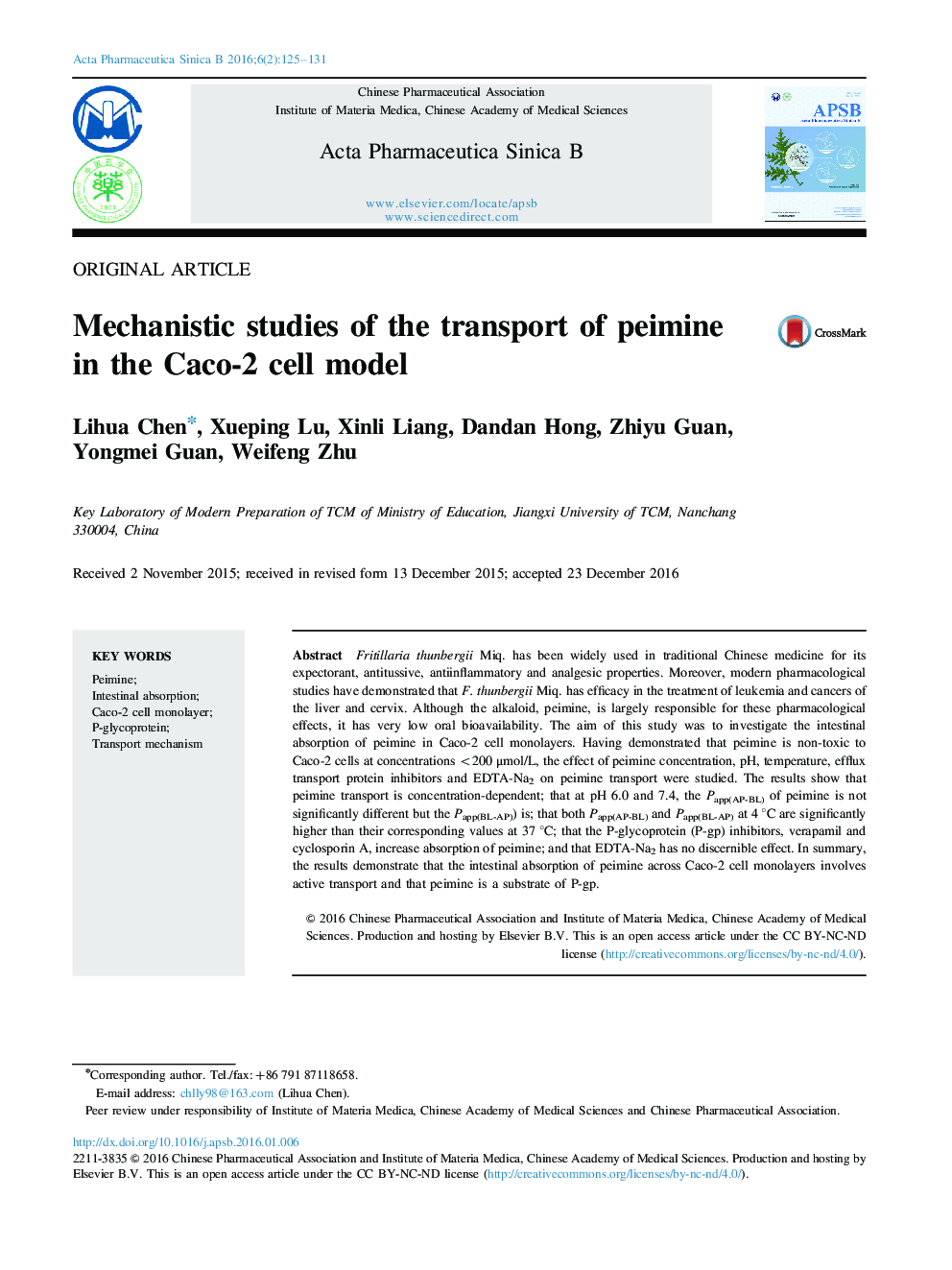| Article ID | Journal | Published Year | Pages | File Type |
|---|---|---|---|---|
| 2474456 | Acta Pharmaceutica Sinica B | 2016 | 7 Pages |
Fritillaria thunbergii Miq. has been widely used in traditional Chinese medicine for its expectorant, antitussive, antiinflammatory and analgesic properties. Moreover, modern pharmacological studies have demonstrated that F. thunbergii Miq. has efficacy in the treatment of leukemia and cancers of the liver and cervix. Although the alkaloid, peimine, is largely responsible for these pharmacological effects, it has very low oral bioavailability. The aim of this study was to investigate the intestinal absorption of peimine in Caco-2 cell monolayers. Having demonstrated that peimine is non-toxic to Caco-2 cells at concentrations <200 μmol/L, the effect of peimine concentration, pH, temperature, efflux transport protein inhibitors and EDTA-Na2 on peimine transport were studied. The results show that peimine transport is concentration-dependent; that at pH 6.0 and 7.4, the Papp(AP-BL) of peimine is not significantly different but the Papp(BL-AP)) is; that both Papp(AP-BL) and Papp(BL-AP) at 4 °C are significantly higher than their corresponding values at 37 °C; that the P-glycoprotein (P-gp) inhibitors, verapamil and cyclosporin A, increase absorption of peimine; and that EDTA-Na2 has no discernible effect. In summary, the results demonstrate that the intestinal absorption of peimine across Caco-2 cell monolayers involves active transport and that peimine is a substrate of P-gp.
Graphical abstractThis research demonstrates that the intestinal absorption of peimine across Caco-2 cell monolayers involves active transport and that peimine is a substrate of P-gp.Figure optionsDownload full-size imageDownload as PowerPoint slide
